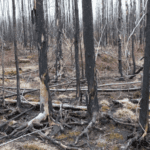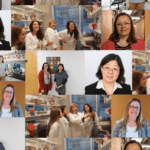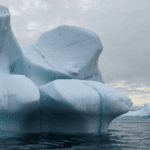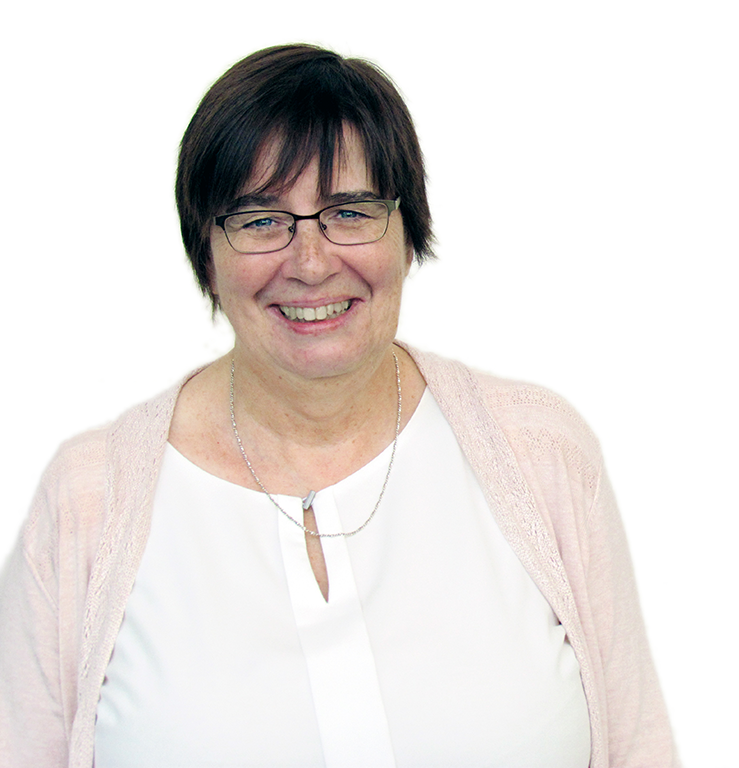 Canadian Science Publishing welcomes Professor Céline Audet, the new Co-Editor in Chief of the Canadian Journal of Zoology.
Canadian Science Publishing welcomes Professor Céline Audet, the new Co-Editor in Chief of the Canadian Journal of Zoology.
Professor Audet is an Emeritus professor at l’Institut des sciences de la mer (ISMER) at l’Université du Québec à Rimouski.
Listen to our interview with Dr. Audet or read the interview below:
Some of the questions and answers have been edited for brevity and clarity.
Thank you for taking time to discuss your role as Editor of the Canadian Journal of Zoology. I wonder if, however, you would mind first sharing a bit about your own research and your research journey. You are known for your work in fish ecophysiology, and I wonder if this something you started in graduate school or something you fell into later on in your career?
It’s really something that happened during my master’s degree, I would say. I started my master’s with a histologist. At the time in the 1980s, when you were working in histology, your career path was to become a histologist. But I was working on fish—on brook char—and then my supervisor offered [to let] me go to a training session for two weeks that was organized by NATO.
I have no idea why NATO organized such meetings, but I said yes. And I went there, and it was just incredible.
For two weeks, we had seminars with people that were involved in fish physiology [and] very different fish species but they were not junior people. They were really people with a long career path behind them, and they were so interesting; the stories that they told us were so great that I came back after this meeting and I knew that I wanted to work with fish and in—I didn’t know the name at that time—ecophysiology.
I don’t know if it existed [but] they were already talking about environmental physiology. And then I decided it was really what I wanted to do.
Then I did my PhD, again on fish, a different species—my master’s was on brook char. I went to work on sticklebacks for my PhD and then it was not something that was common at that time but I already had two co-supervisors: one was a biochemist, Dr. Helga Guderley, who is, in fact, one of the Co-Editors-in-Chief of the Canadian Journal of Zoology, and an ecologist, Dr. [Gerard] Fitzgerald. So even if Helga was a biochemist, I was working on physiology, and I put that in an ecological perspective.
After that I think, it was just the way I continued working, and it just came very naturally to me because I wanted to do some work that meant something in terms of the environment or in terms of physiology; studying physiology in a context that is not ecologically relevant does not really bring new interesting knowledge for me to the physiology of the fish. It really has to be something that they experience in the real world.
Was this the intriguing part of those NATO science meetings—that intersection of the ambient environment and the physiology of the fish?
I don’t know, it was the only one I went [to], and I really don’t have any idea; it’s amazing the influence this [had] on my career. But at the same time, I don’t really know very much about those training sessions. I must say that when I was there, I didn’t speak English so those two weeks were something for me. All of those conferences were in English so it was really English immersion, and I had many different things to deal with, and that’s one of the reasons I was not so interested in why NATO organized that. But I really [tried] to profit from [this experience] as I could.
That period in the 1980s was sort of the boom and real growth of interest in aquaculture—was that a factor in shaping your career as well?
It’s not something that I have chosen. I did my post doc in ecotoxicology and then I was looking for a job, and there was a job that was announced in Rimouski, and it was dealing with aquaculture. And I knew about iono-regulation in fish. It was for saltwater rearing of brook char, and so I applied, and I told the jury that I knew very much about this one regulation and I knew a lot about salmonids, but I didn’t know anything on aquaculture. But as I learned all my life before, I knew I could learn again and learn how to apply this to aquaculture. Probably I was convincing enough. They gave me the job, and then I applied the things I was doing to aquaculture.
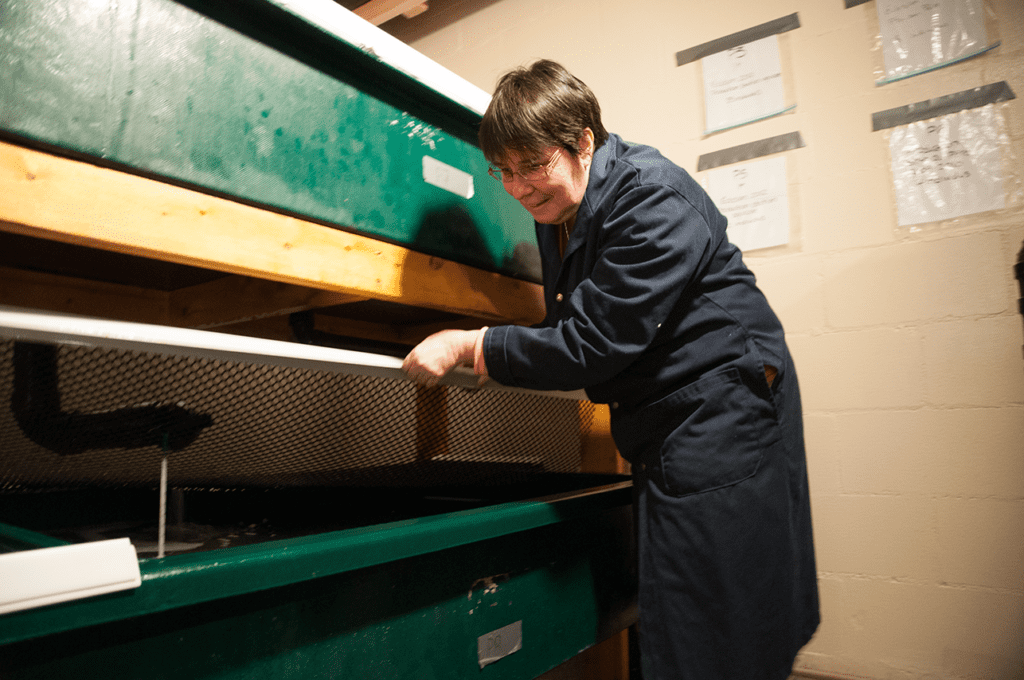
I don’t think the institute for marine sciences at Rimouski existed as such at that time?
Well, at that time, ISMER—where I am now—was not existing, it was INRS-Océanologie. INRS is a part of the University of Quebec network—but it was the only research institute. The INRS still exists but most of its institutes [research centres] are in Quebec and Montreal, but at that time, INRS had one in Rimouski. And this institute [research centre] merged with a department of the University of Quebec in Rimouski and formed the Institute des sciences de la mer (ISMER) where I am working right now.
How long ago was that—that the integration took place?
Fifteen years I would say. Around fifteen years, yeah. It’s perhaps a little bit more.
Reading about it on the web, it looks like a pretty interesting place because there are so many disciplines represented.
Oh yeah, for someone like me who likes to work with physiology but ecology also and other fields, it was great because in our institute, there are some biologists, chemists, physical oceanographers, [and] geologists; all people that are interested in marine sciences, but from very different fields of expertise. So, its very unusual but it’s great because I think that it’s opening your mind to very different scientific approaches—and I love it.
I see by looking at the past issues of the journal that you’re an Editor of— that they seem to devote a significant amount of attention to aquatic and marine environment issues—I’m sure this is a reason that you were first attracted to the journal and the role.
I was always interested in zoology in the broad sense. I was a member for a very long time [of] the Canadian Society of Zoologists and went to all their meetings. Very often I could not go to conferences on fish, but I [could] go to conferences on birds, conferences on invertebrates, mammals …because I am very interested in very different topics.
Of course, the way that science is working now, the amount of information is so great in our own field that it is very kind of difficult to have a follow up [summary] of what is existing for the other kinds of animals.
I think this is really what I liked in the Canadian Journal of Zoology because I can look at papers from very different kinds of animals and then having a look at what is done in these different fields. And this is what I really like.
Do you find that you can apply some of the lessons from some of those other studies of animals to fish?
I think so—I really think that if we stay in our own field of expertise sometimes there are ways of thinking that probably that will be maintained, not because we want to, but for different reasons. Then when we look at what is done by other people working on different kinds of animals or in other fields, I mean it just opens your vision and the scope that you do have in your own work.
We have a special challenge this year in getting outside our own bubbles and interacting with people beyond our own.
Yes, I work very much with the [Les] Fonds de recherche du Québec which is the granting organization in Quebec. For a certain amount of years now, they’ve tried to promote inter-sectoral science activities which means having people not only within science and engineering but having people in science and engineering working with people in the medical field or in the social sciences. Because again, it’s another way to see things differently and perhaps also I was motivated by such approaches too, I think.
Well, it’s been a delight talking to you. I was thinking that if you have to be stuck somewhere in a bubble, Rimouski is a pretty good place, of course, if you’re a hockey fan it’s not a bad place to be either.
Yes, this is something else as it’s not a big university; it’s a small university, it’s a small research centre, but at the same time we’ve really had really big success in science, and I think it’s probably because when you are geographically isolated then you need to do some collaborations with people elsewhere to open your environment. I think all those things all probably go together, I would say so. So, it’s a great place to learn about collaboration and how to work with people that are in different areas far from you and where you are. It also, I think, probably played a role on what I did after that, you know.
Well, thanks again for taking this time to share your experiences and for sharing your expertise with the journal.
Thank you.
In-text images: Courtesy of Dr. Céline Audet.
Podcast music is “Spring Cleaning” by Jay Man, www.Our-Music-Box.com


